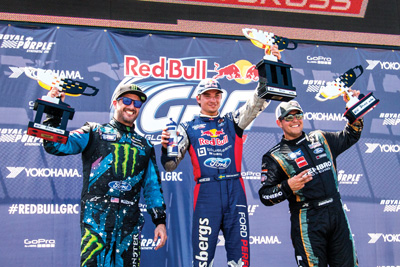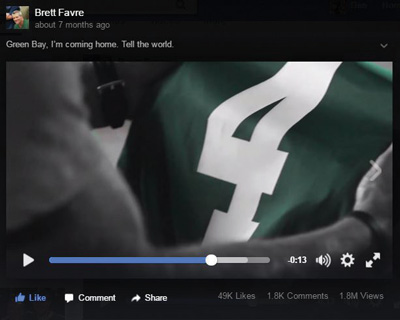Social media has been a part of culture for a decade now, and after 10 years of tweeting and Facebooking about favorite plays, favorite teams and the madness and elation of fandom, it’s clear these platforms have become integral to the way we experience sports. We watch together and root together. Now, passionately, we post and share content together, too.
Intuitively and communally, social media gets what sports are all about. So why have advertisers and their agencies, whether their remit is advertising, PR, digital or any combination thereof, been so slow to bring the two together in consistently meaningful ways? Repeatedly, we keep seeing the same advertising problem, especially around marquee sporting events: social that’s treated in a way that isn’t very social at all.
When taking a more traditional advertising approach, sports-related social ads or content have fallen far short of their built-in potential to start conversations. Things often go bad from the start. Since conventional ads and social content represent completely different approaches and outcomes, they should never be guided by an identical creative process.
 |
Red Bull has made itself part of the extreme sports culture.
Photo by: GETTY IMAGES
|
Creating content for social requires sports marketers to truly know their audiences, to completely understand their emotional triggers. It’s not enough to know that NFL fans are passionate about the sport, love their team and are active on social media. That’s a given. Rather, it’s about understanding the deeper meaning of sports — for example, when Saints fans felt their whole city was lifted up by their team during New Orleans’ recovery from Hurricane Katrina. Knowing the almost spiritual connection between fans and teams can fuel a stronger relationship between a brand and audience. Formulating advertising, like pre-roll, on the other hand, only requires brands and agencies to address the same old boilerplates: What’s the brand message? The brand equity? The brand voice?
The age of social requires an entirely new content development strategy, from ideation to distribution. Social demands that the content is fan first, not brand first.
Red Bull’s aim, for example, is to be the best action sports content producer possible. By doing so, it has transcended the idea of merely being an energy drink pushing product. Instead, it has made itself part of the fabric of the extreme sports culture. By giving its audience what it wants and by being true to consumer identity first, Red Bull continuously builds brand strength — which, according to McKinsey, “contributes 60 to 80 percent to overall sales.” McKinsey also reports brand strength is “critical for sustained, long-term sales growth.”
Brands that are successful in using social understand that the most significant rewards are not promotional in nature. Social should serve as a means to effectively shape the way people perceive their identity, and the best approach is through organic reach. Although the prevailing mentality from most agencies and marketers suggests the only way to succeed on social is through paid promotion, brands that tell shareable, touching stories are proving otherwise.
 |
Tide used Favre’s return to Lambeau to create shareable content.
|
We teamed up with P&G’s Tide brand, for instance, to create a signature social campaign surrounding the Green Bay Packers’ game at Lambeau Field last Thanksgiving. That night, the team was retiring Brett Favre’s number, something that represented a historic moment: a homecoming and a reconciliation between a team and an iconic player who had grown apart. The 45-second video we produced with Tide was posted on Favre’s Facebook page. It generated 24,000 shares and ultimately reached 7.5 million people despite Favre only having 900,000 Facebook fans at the time. Packers fans loved and shared the content because we understood exactly how to strike the right emotional chord and help fans reconnect with a star they wanted to love again.
The path to meaningful organic reach starts with great content, the making of which fully depends on seeing social as a highly personal medium.
Since social is also data-driven, you must be adept at getting the right message in front of the right audience with great precision. Users make their social experiences personal. They pick the content they want to see and share. One of the great things about social is that we don’t have to guess what a targeted audience cares about. It’s right there in the data. Think about how many times you replayed a brand’s pre-roll. Not many, right? Now, consider the replay potential for the best videos you see on social. Users watch repeatedly and share heavily. When content strikes an emotional chord, it affects the way you perceive that brand.
The Tide-Favre initiative is just one example that proves that users on social are more than happy to consume branded content. That’s only if the story soars, speaking in the right tone, at the right time, to the right people. Social was built to reward great content.
Every marketer and agency knows they need to live on social, but success requires a reversal in mindset. We’re content producers, not advertisers. The process needs to be flipped — and it needs to be focused, first and foremost, on audience passions.
Dan Gadd (dgadd@taylorstrategy.com) is director of digital strategy at Taylor, a leader in digital sports strategy and public relations.






